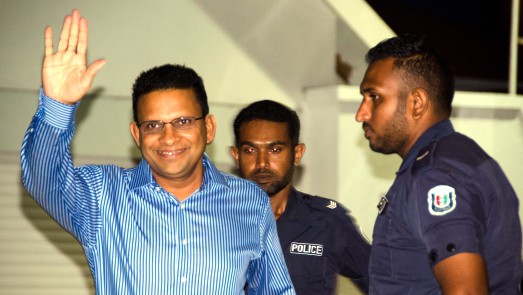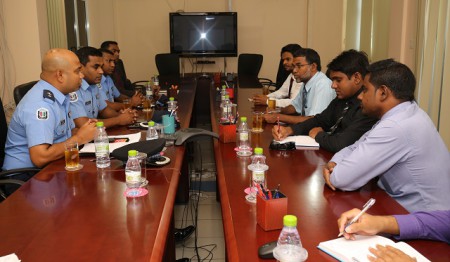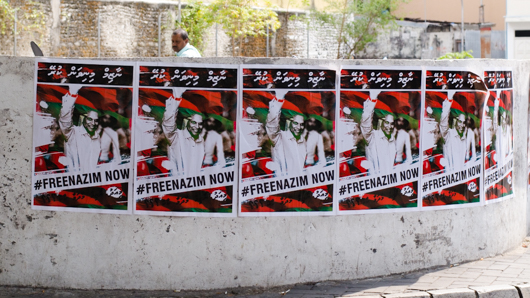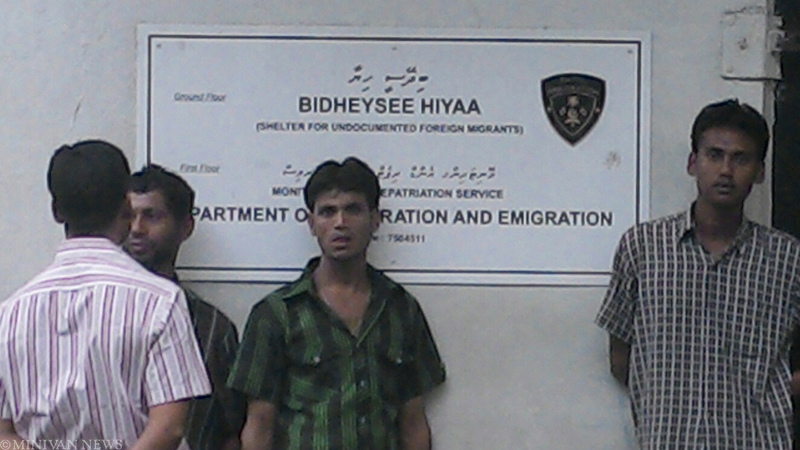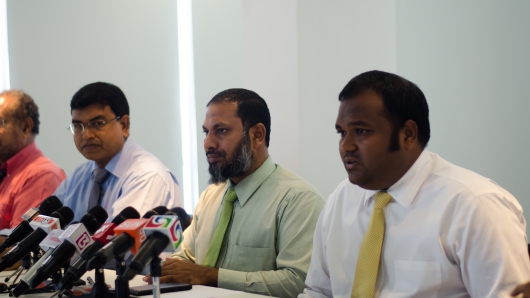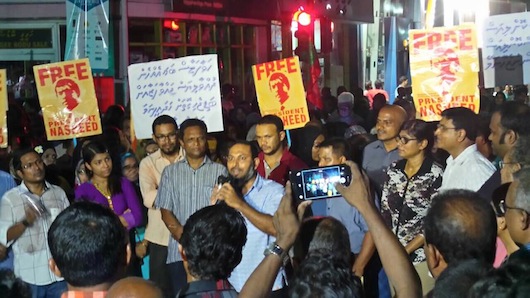The Criminal Court has found former Defence Minister Mohamed Nazim guilty of smuggling dangerous weapons and sentenced him to 11 years in jail.
At a late night hearing on Thursday, the three-judge panel said Nazim had not been able to demonstrate how he had come to possess a pistol and three bullets found in his apartment during a police raid on January 18.
The weapons did not belong to the state armoury and therefore must have been smuggled into the country, the judges said. Further, since the police had discovered the weapons at Nazim’s home in a raid conducted according to the law, they must be considered to belong to the former defence minister, judges concluded.
Nazim’s defence team have maintained the pistol and three bullets were planted by rogue officers on the orders of Tourism Minister Ahmed Adeeb, after the pair fell out over Adeeb’s alleged use of police SWAT team for criminal activities.
The Maldives Police Services and the Tourism Minister have denied the accusations as baseless and untrue.
Nazim, as he was escorted out of the courtroom under a police guard tonight, told his distraught family, “We will still gain justice.”
Speaking to reporters outside the courthouse, defence lawyer Maumoon Hameed said the three judges had not considered the defence’s arguments and said he would lodge an appeal at the High Court as soon as possible.
The Criminal Court last week refused to call all but two of the 37 defence witnesses, claiming some were not relevant while others did not appear to negate the prosecution’s claims.
Following the weapons discovery, Nazim was dismissed from the cabinet. He was then arrested on February 10 under additional charges of terrorism and treason.
State prosecutors in court also claimed documents on a pen drive confiscated along with the weapons revealed that Nazim was plotting a coup d’etat and planning to harm President Abdulla Yameen, Commissioner of Police Hussein Waheed and the Tourism Minister.
The documents were presented in a closed hearing, allegedly to demonstrate the former defence minister had a motive in smuggling the pistol.
Nazim’s family had previously said “there is no hope for a fair trial” due to a “notoriously politicised judiciary,” and said Nazim had “fallen foul of a political conspiracy, one in which powerful forces within the government have sought to destroy him and prevent him from challenging the leadership of the ruling party.”
Right to defence “obstructed”
At a 4:oopm hearing on Thursday, state prosecutors and defence lawyers presented closing statements.
State prosecutor Adam Arif said Nazim had admitted police discovered the weapons in his bedroom during a search carried out in his presence. Claiming Nazim had failed to explain who the weapons belonged to, Arif said he must be held responsible for the pistol and three bullets discovered under his roof.
Tests carried out by Maldives National Defence Force (MNDF) proved the weapons were functioning and dangerous. Further, the MNDF had said the weapons did not come from the state armory, he said.
Police officers had also testified the raid and search were conducted according to rules and regulations, he added.
But referring to the Criminal Court’s refusal to call the majority of Nazim’s defence witnesses, defence lawyers contended the court had “obstructed” Nazim from mounting a proper defence.
Lawyers claimed over 15 SWAT officers broke down the door to Nazim’s apartment on the night of the raid, barged into his bedroom in the dark, pointed a riot gun at his head and escorted him and his wife into the living room.
SWAT officers then spent at least ten minutes unsupervised in the former Defence Minister’s bedroom, during which they planted the bag containing the pistol in a bedside drawer, lawyers suggested.
Police testimony confirmed the search team had arrived approximately 15 minutes after the SWAT officers secured the premises, but state prosecutors had failed to explain the gap, lawyers argued.
The defence team also contended police conduct of the raid and search was unlawful, arguing the resulting evidence was therefore inadmissible in a court of law.
Lawyers said if the defence had been allowed to call its witnesses, it would have been possible to prove police spent time unsupervised in Nazim’s bedroom, and that SWAT officers were previously under investigation for criminal activities.
They would also have been able to prove the pistol was in fact imported by the state for the protection of foreign dignitaries, they added.
Lawyers urged judges not to accept the testimony of police officers, claiming they had lied in court. Lawyers pointed to what they called serious contradictions in testimony, as one claimed the search team had checked the ceiling and above a cupboard in the bedroom, while the others denied doing so.
Some witnesses claimed secret information indicated the weapons were located on either the seventh or eight floor while others said it was just the eighth floor, lawyers said.
The panel overseeing Nazim’s case are the same judges who sentenced former President Mohamed Nasheed to 13 years in jail on March 13.
